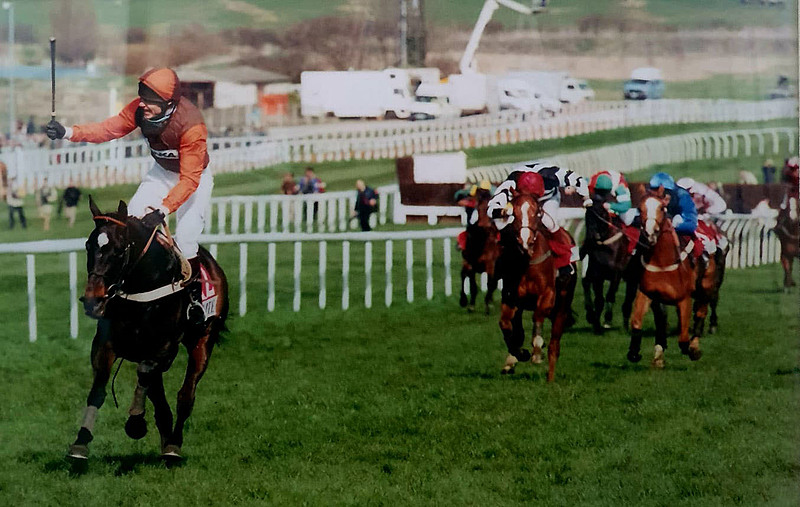A chance to catch last week's Racing Post point-to-point focus column, with guest editor Sam Waley-Cohen, which was published on Friday, January 15.
Amateur participation is the bedrock of jump racing, so the decision to prevent amateurs taking part in contests under rules from Saturday – including hunter chases – is not only devastating to all those people but has the potential to do real, long-term damage to the sport as a whole.
We need to think calmly about both the short-term and long-term effects of this decision, and I really hope that amateurs are reinstated at the earliest opportunity. It would fundamentally change the nature of amateur racing and point-to-pointing if it became the norm for professional jockeys to ride in hunter chases.
People need to understand that we have come a long way from the amateur sport many might remember.
When I started there were a handful of very competent riders and a lot more who were riding for a laugh – they were just as happy in the hunting field as race-riding. I hope it never becomes inaccessible to those who just want to get involved for fun, yet all sports keep moving and finding different sources of energy, and that has been true for point-to-pointing. It is more competitive now and there are more people trying to make and trade a horse.
It's been a lot of fun
I’ve been riding in point-to-points for more than 20 years now and, while I’ve been lucky to have ridden some good horses and a couple of great horses in major races, I still enjoy going out to ride a maiden. I certainly have no plans to retire, although if I won the Grand National I would finish there and then.
The challenge of how to get the best out of that horse remains a pleasure, and since most of the horses I ride for my father [Robert] are homebreds we are always trying to find the next star. It takes four or five years to get a horse to the track, so there are lots of hopes, dreams and expectations. Dad and Kate Mawle do the bulk of the training, I make comments – welcome or not – and do the schooling. It's a team effort.
My first ride, when I was 17, was at Tweseldown on a lovely horse called Wishing William, who looked after me and we finished second. Soon after I rode my first winner on him. That was at Mollington, a course that is local to our home, and with friends and family there it was a memorable occasion. Looking back, that was the beginning of a lot of fun, some great and some not so great days.
At that time the two standout riders in the sport were Richard Burton and Julian Pritchard, and I always remember one particular race when I rode Irilut and managed to beat Burty in a tactical affair at Tweseldown. I followed him inch by inch and timed my run to be in front when it mattered – if you get a race right tactically, thinking about your own tactics and what your key rival's tactics will be, you get a great sense of achievement.
The strangest experience I have witnessed at a point-to-point came at Weston Park in Shropshire – sadly a course that no longer exists. Fog was coming down as we rode to the start and became thicker once we jumped off. We missed the turning into the home straight and ended up racing into the car park!
I just hope now that we're back soon. There are plenty of familiar faces at every meeting and a sense of camaraderie.
Superstar horses
Even good horses come with challenges. Katarino, who was trained by my father to record two wins and a second place in Aintree's Fox Hunters' Chase, had to contend with all sorts of issues, but was exceptional on his day.
I will add it was a great piece of training by Dad and Kate to get him to Aintree fit and ready to win off such difficult preparations.

Katarino hacks up in the 1999 Triumph Hurdle at Cheltenham, before Sam took over in hunters' chases
The best horse, though, is easy to name, because Long Run would have been the horse of a lifetime for many professional jockeys, let alone an amateur like myself.
I suppose it would have completed the dream had we trained him to win a Foxhunter at Cheltenham first and then gone for the Gold Cup. I would love to find a horse we could do that with, but Long Run came to us as a novice chaser with a Grade 1 success in France, so there was no going back to hunter chasing at that stage of his career.
During my time riding in races Cappa Bleu has been an example of a pointer who won a Foxhunter Chase at Cheltenham and was later placed in the Grand National, so it can be done.
Long Run came to our attention because we owned his half-sister, Liberthine, on whom I won a Topham Chase and a handicap chase at the Cheltenham Festival. We went to Auteuil near Paris to see him run in a race from Guillaume Macaire's yard, and when he walked into the paddock you just wanted a part of him. He was such a lovely-looking horse, very impressive and powerful, and I couldn't help but hope a deal could be done.
History shows we managed that and he took us to places we never thought possible. There was a lot of expectation and pressure when you ride a horse like that, but it adds to your experience and makes you a better rider. Every experience of horses and race-riding stand me in good stead today, whether I'm taking part in a chase against professional jockeys or lining up in one of The Jockey Club’s maiden races for mares at a point-to-point.
